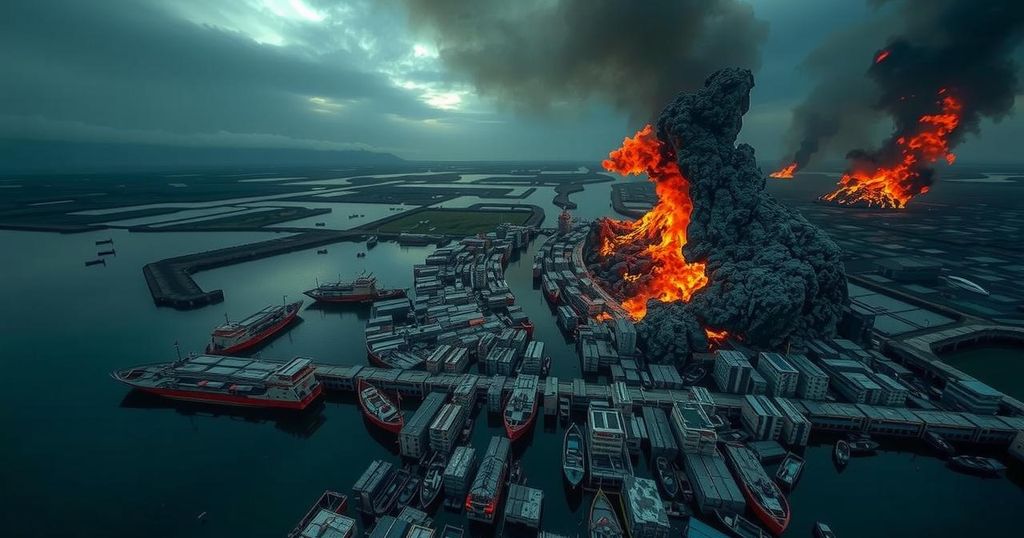The UN reports a severe worsening of the refugee crisis due to climate change, with significant increases in displacement linked to extreme weather and conflict. Current figures indicate 120 million displaced individuals globally, with climate-related disasters affecting 220 million in the last decade. Urging increased funding for adaptation and resilience, the UN warns of dire future conditions for refugees and host communities without immediate action.
The United Nations has reported a significant escalation in the global refugee crisis, attributing much of the increase to climate change. In conjunction with ongoing international climate discussions in Baku, the UN refugee agency has underscored how rising temperatures and extreme weather patterns are exacerbating living conditions for displaced individuals. Conflict-affected regions such as Sudan, Somalia, and Myanmar are particularly vulnerable, with climate-related emergencies occurring with alarming regularity. UNHCR Chief Filippo Grandi noted that those uprooted from their homes are disproportionately affected by these crises and that the number of displaced persons has reached an unprecedented 120 million, with projections indicating a worsening scenario due to climate hazards. The increase in displacement is alarming, particularly as the number of those affected by conflict has doubled in the past decade. Concurrently, weather-related disasters have contributed to the displacement of approximately 220 million individuals within their home countries over the past ten years. UNHCR’s Special Advisor on Climate Action, Andrew Harper, emphasized the growing urgency of addressing this crisis, highlighting the severe underfunding of support for displaced people and their host communities. Many refugee settlement areas are located in low-income countries that lack essential infrastructure, making them particularly susceptible to climate impacts. Looking ahead, the UNHCR predicts a concerning rise in countries facing extreme climate risks, from three currently to 65 by 2040. Refugee camps and settlements will likely face a significant increase in days characterized by dangerous heat by the year 2050. This trend presents serious implications for food security and overall health, as loss of arable land and livestock could seriously disrupt living conditions for displaced communities. As the COP29 conference in Baku continues, UNHCR advocates for an increase in international climate financing directed toward refugees and their host countries. Presently, those living in fragile states receive only a fraction of the financial aid compared to those in more stable regions. Without substantial investment in climate resilience and adaptation strategies, further displacement is anticipated, leading to an untenable situation for affected populations. Andrew Harper pointedly remarked, “If we do not invest in peace, if we do not invest in climate adaptation in these areas, then people will move. It is illogical to expect them to do anything different.”
The report from the United Nations highlights the intersection of climate change with the global refugee crisis, illustrating how extreme weather events and rising global temperatures are contributing to relocation and further deteriorating existing conditions in refugee settlements. With ongoing climate discussions worldwide, the urgency for addressing these issues has intensified, as ever-increasing numbers of individuals are forced to flee their homes due to both environmental and conflict-related factors. Understanding these dynamics is vital for formulating effective responses to the humanitarian challenges posed by climate change.
The UN’s report signifies an urgent call to action regarding the intertwined issues of climate change and forced displacement, emphasizing the need for increased funding and support for vulnerable populations. As global temperatures continue to rise, the implications for refugee conditions are expected to worsen, necessitating immediate investment in adaptation strategies. The stark reality presented by experts underscores that without proactive measures, the plight of displaced individuals will only exacerbate, creating deeper humanitarian crises across the globe.
Original Source: www.rfi.fr







